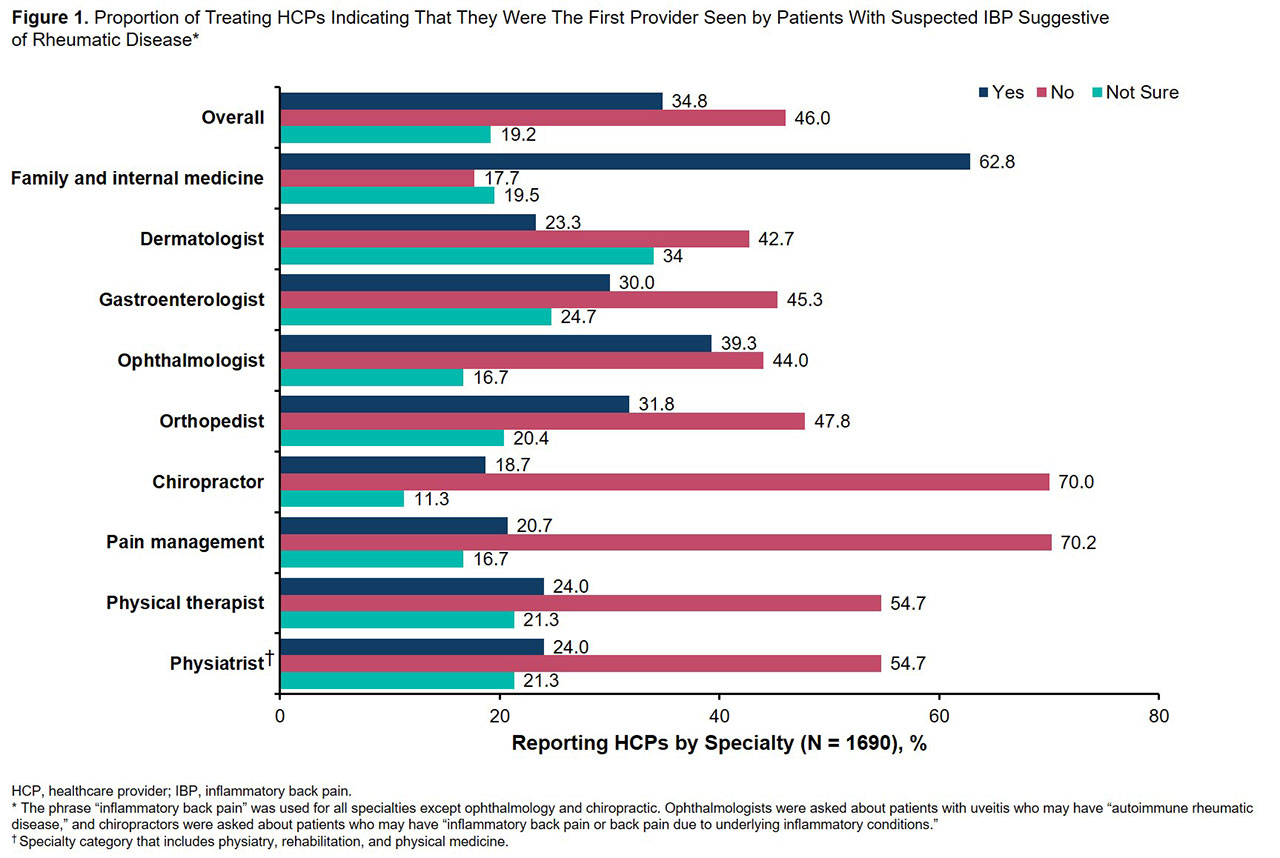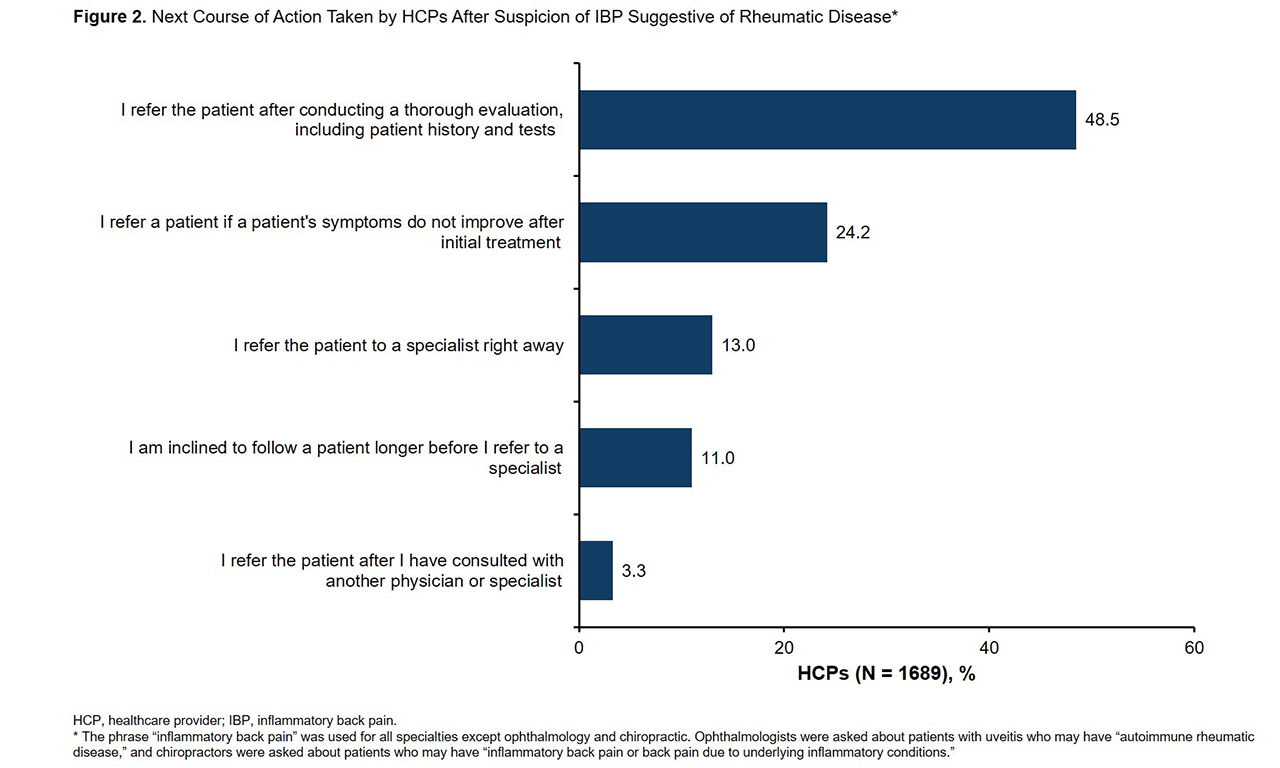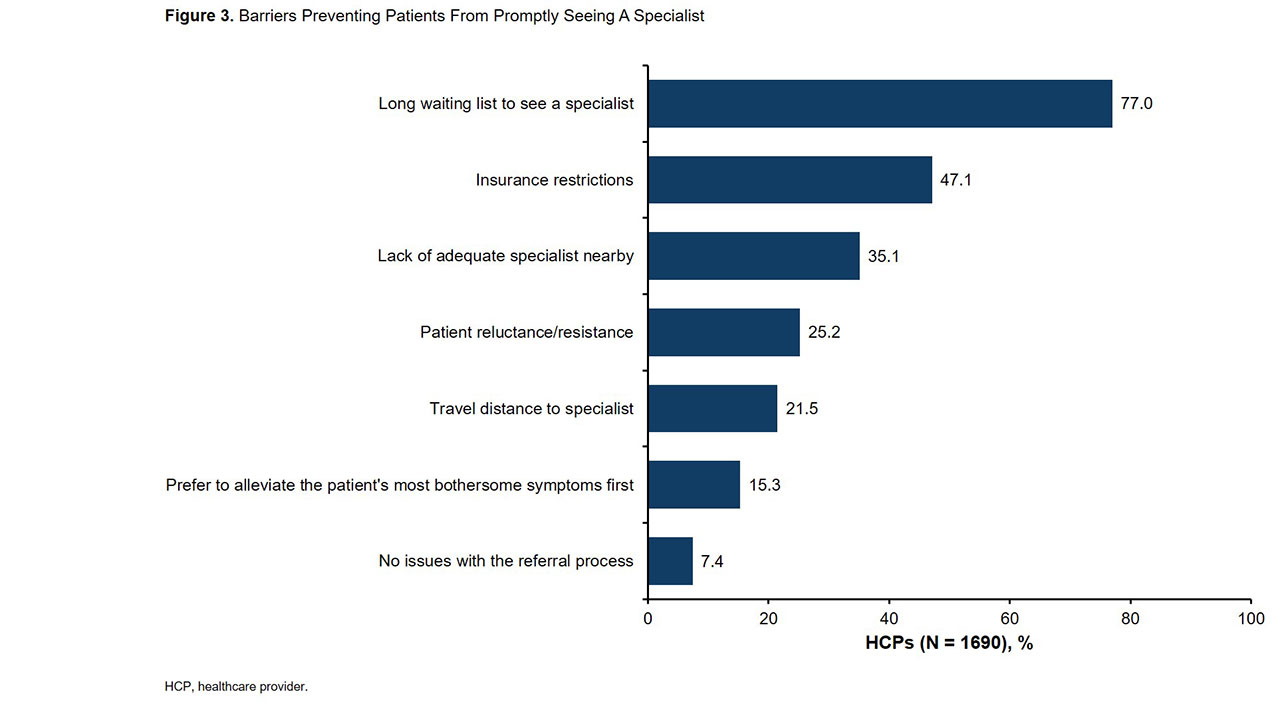Session Information
Session Type: Poster Session (Sunday)
Session Time: 9:00AM-11:00AM
Background/Purpose: Early diagnosis of axial spondyloarthritis (axSpA) in the United States remains challenging due to the high prevalence and nonspecific presentation of chronic back pain treated by non-rheumatology healthcare providers (HCPs). We aim to understand the patient referral and follow-up process and barriers to rheumatology referral among patients with putative inflammatory back pain (IBP) suggestive of axSpA.
Methods: Survey content was developed based on concept elicitation interviews with HCPs, and final questionnaires were generated to characterize their patient referral process. The survey was then cognitively tested with HCPs from 10 specialties (family medicine, internal medicine, dermatology, gastroenterology, ophthalmology, orthopedics, chiropractic, pain management, physical therapy, and physiatry), revised, and finalized. HCPs from these 10 specialties were invited to participate in the cross-sectional web-based survey hosted by Survey Sampling International between June 27 and July 20, 2018. HCPs who were currently licensed, actively practicing in the United States, and had referred a patient with suspected IBP (except ophthalmology) or uveitis/iritis (ophthalmology only) within the past 12 months were eligible to participate. Descriptive statistics were used to analyze the data.
Results: Of 2395 HCPs screened, 1690 were eligible and included in our study. Overall, HCPs saw a median of 100 patients with chronic back pain within the past 12 months. HCPs most frequently reported an average time of 3 to 4 months before a patient decided to see them (18.2%), whereas 17.1% reported 1 to 2 years. Overall, almost half of HCPs (46.0%) indicated that their patients had seen other specialists before consulting them; however, 62.8% of primary care HCPs (family and internal medicine) reported that they were the first HCPs seen by their patients (Figure 1). Once IBP was suspected, most HCPs (48.5%) would refer the patient after conducting a thorough evaluation, and 13.0% would refer the patient to a specialist right away (Figure 2). Upon referral, 90.2% of HCPs estimated a wait time of up to 2 months for their patient to see a rheumatologist, 9.1% estimated a wait time of 3 to 6 months, and 0.7% estimated a wait time of 7 months to > 1 year; long waiting time (77.0%) and insurance restrictions (47.1%) were the primary reasons that may prevent patients from being able to see a specialist right away (Figure 3). Of 1607 HCPs queried, 61.9% ranked the specialist’s expertise in treating autoimmune disease as the most important factor influencing their referral.
Conclusion: Nearly two-thirds of primary care HCPs reported that they were the first HCPs consulted by patients with suspected IBP, suggesting that targeted education of primary care HCPs may improve referral rates and yield a timely diagnosis of axSpA. Most HCPs (90.2%) estimated a wait time of up to 2 months for their patient to see a specialist after a referral was made and indicated that the specialist’s expertise in autoimmune diseases is the most important factor influencing their referral.
To cite this abstract in AMA style:
Magrey M, Yi E, Wolin D, Price M, Chirila C, Davenport E, Park Y. Recognition of Inflammatory Back Pain by US Healthcare Providers and Barriers to Specialist Referral [abstract]. Arthritis Rheumatol. 2019; 71 (suppl 10). https://acrabstracts.org/abstract/recognition-of-inflammatory-back-pain-by-us-healthcare-providers-and-barriers-to-specialist-referral/. Accessed .« Back to 2019 ACR/ARP Annual Meeting
ACR Meeting Abstracts - https://acrabstracts.org/abstract/recognition-of-inflammatory-back-pain-by-us-healthcare-providers-and-barriers-to-specialist-referral/



